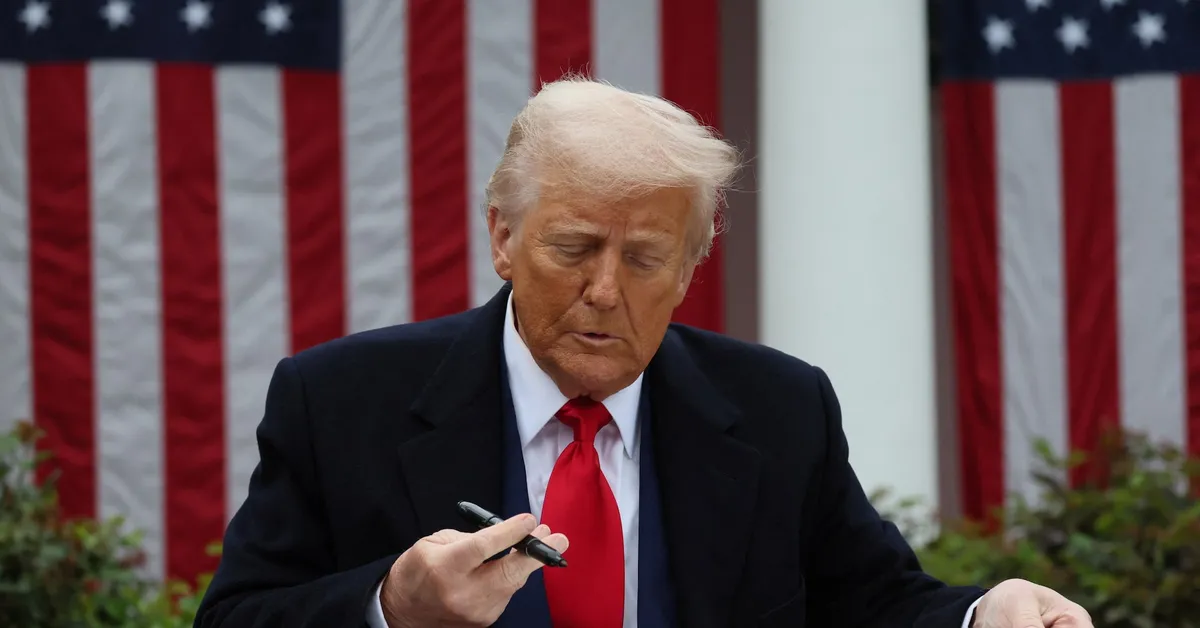
The recent imposition of tariffs by the United States has sparked a wave of reactions from governments around the world. This article delves into the responses from various nations, highlighting their positions on the reciprocal tariffs and their planned countermeasures. The focus will be on key players like China, Japan, South Korea, Canada, Mexico, Australia, the European Union, and Brazil, providing insights into how these countries are navigating the complex landscape of international trade.
In response to the recent announcement of a 34% reciprocal tariff by the United States, China's commerce ministry has expressed strong opposition. They stated that Beijing will take necessary countermeasures to protect its own rights and interests. China's position underscores the escalating trade tensions and the potential for retaliatory actions that could further complicate global trade dynamics.
Japanese Trade Minister Yoji Muto labeled the reciprocal tariffs as “extremely regrettable.” He emphasized Japan's intention to urge the U.S. to exempt the country from the 24% reciprocal tariff that is currently imposed. This highlights Japan's reliance on maintaining favorable trade relations with the United States amid growing economic pressures.
Following the announcement of a 25% tariff on South Korean goods, Acting President Han Duck-soo ordered the implementation of emergency support measures aimed at aiding affected businesses, particularly in the automotive sector. This swift response illustrates South Korea’s proactive approach to mitigating the adverse effects of U.S. trade policy on its economy.
Canadian Prime Minister Mark Carney announced that Canada is prepared to fight back against the tariffs with decisive countermeasures. He emphasized that Canada and Mexico are currently not facing reciprocal tariffs, as Trump’s previous 25% duties on fentanyl-related goods remain in effect. Moreover, the tariff exemption for goods compliant with the U.S.-Mexico-Canada Agreement will continue indefinitely, offering some relief to Canadian businesses.
President Claudia Sheinbaum of Mexico stated that the country would not engage in a tit-for-tat tariff battle. Instead, Mexico plans to announce a comprehensive program aimed at addressing the situation. This strategic decision reflects Mexico's preference for constructive solutions rather than escalating trade conflicts.
Australian Prime Minister Anthony Albanese indicated that Australia will seek to negotiate with the United States to eliminate the tariffs. He firmly stated that his government would not impose reciprocal tariffs, as this would lead to increased prices for Australian households. Albanese’s approach emphasizes the importance of maintaining economic stability and growth without succumbing to retaliatory trade measures.
In response to the U.S. tariffs, Bernd Lange, chairman of the European Parliament's international trade committee, stated that the EU plans to respond with “legal, legitimate, proportionate, and decisive measures.” Ireland’s trade minister, Simon Harris, echoed this sentiment, asserting that the EU must act in a manner that protects its citizens and businesses. Meanwhile, Portugal's Economy Minister Pedros Reis called for a response that is both firm and intelligent, showcasing the EU's commitment to a balanced and strategic approach.
Brazil, the largest economy in Latin America, is evaluating all possible actions in response to the 10% tariff imposed by the U.S. The Brazilian government is considering resorting to the World Trade Organization for recourse. Additionally, Brazil's Congress has approved a bill that establishes a legal framework for responding to unilateral trade measures, including potential countermeasures such as tariffs. This proactive legislative action highlights Brazil's commitment to protecting its trade interests.
The global response to the recent U.S. tariffs illustrates the complexities of international trade relations. Countries are adopting varied strategies, from negotiating exemptions to implementing countermeasures, highlighting the delicate balance of protecting national interests while striving for constructive dialogue. As these nations navigate the evolving trade landscape, the impact of these tariff measures will continue to shape international economic policies.